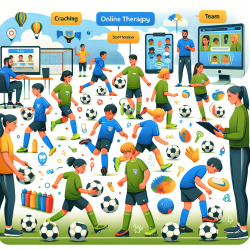Introduction
Mucopolysaccharidosis Type II (MPS II), also known as Hunter Syndrome, is a rare, X-linked recessive disorder characterized by a deficiency of the lysosomal enzyme iduronate-2-sulfatase. This enzyme deficiency leads to the accumulation of glycosaminoglycans, resulting in pathological changes across multiple body systems. The disease presents with a wide array of symptoms, making early diagnosis and management challenging.
Understanding the Multidisciplinary Approach
The European recommendations for the diagnosis and management of MPS II emphasize the importance of a multidisciplinary approach. This involves collaboration among various specialists, including pediatricians, otorhinolaryngologists, cardiologists, neurologists, and speech therapists, among others. This comprehensive strategy is crucial due to the multisystem nature of MPS II and the need for diverse expertise in managing its complex manifestations.
Key Findings and Recommendations
The research article highlights several key recommendations for practitioners:
- Early Diagnosis: Early identification through biochemical and genetic testing is critical for initiating timely treatment and improving patient outcomes.
- Enzyme Replacement Therapy (ERT): ERT with idursulfase is recommended to address the underlying enzyme deficiency, leading to improvements in somatic symptoms.
- Monitoring and Assessment: Regular monitoring of disease progression and response to therapy is essential. This includes physical, biochemical, and behavioral evaluations every 6-12 months.
- Multidisciplinary Management: Coordination among specialists ensures comprehensive care, addressing cardiovascular, neurological, musculoskeletal, and other system-specific manifestations.
Implications for Practitioners
For practitioners, the implementation of these recommendations can significantly enhance the quality of care provided to patients with MPS II. By adopting a data-driven, evidence-based approach, clinicians can better manage the complex needs of these patients, leading to improved clinical outcomes and quality of life.
Encouraging Further Research
While current treatments like ERT have shown promise, there remains a need for further research into therapies that can address the neurological aspects of MPS II. Practitioners are encouraged to stay informed about ongoing research and consider participation in clinical trials that explore new therapeutic avenues.
Conclusion
The management of MPS II requires a collaborative, multidisciplinary approach to effectively address the diverse challenges posed by this complex disorder. By integrating the latest research findings into clinical practice, practitioners can play a pivotal role in improving the lives of patients with MPS II.
To read the original research paper, please follow this link: Mucopolysaccharidosis type II: European recommendations for the diagnosis and multidisciplinary management of a rare disease.










